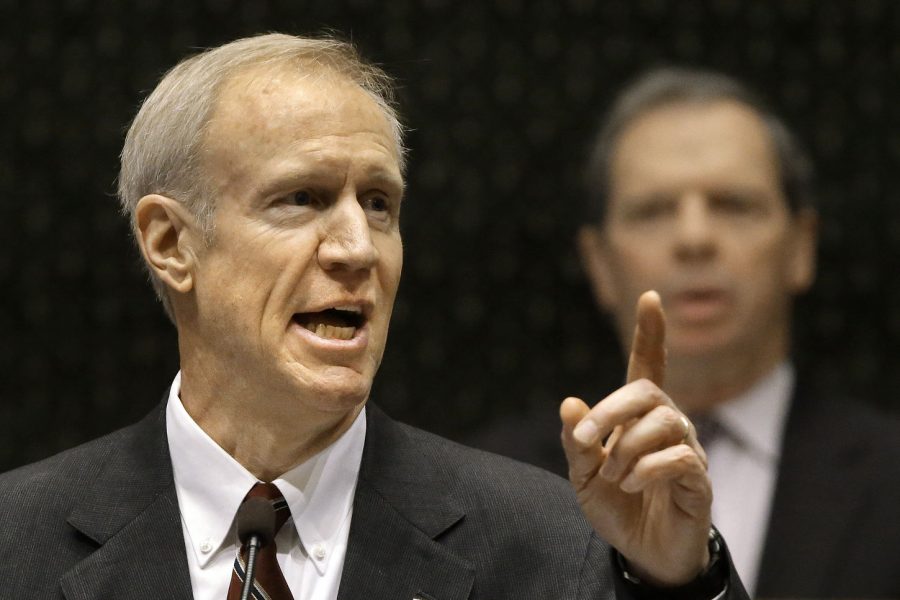Higher education not in Rauner’s budget address
Gov. Bruce Rauner delivers his annual budget address to a joint session of the General Assembly in the House chambers at the Capitol Building on Wednesday in Springfield.
February 18, 2016
Despite having no budget for Fiscal Year 2016, Gov. Bruce Rauner gave his annual budget address for Fiscal Year 2017 on Wednesday addressing K-12 education but not higher education.
Rauner’s FY 2016 proposed budget includes reduction in funds to public entities, including NIU’s $93 million in allocations being cut to about $64 million. A lack of agreement on the proposed budget has resulted in a seven-month impasse. Without a finalized budget, state appropriations cannot be given.
FY 2016 ends on June 30. FY 2017 begins July 1 and goes through June 30, 2017.
“The governor did not really present the kind of budgets that governors have in the past, it didn’t go line by line, and I think that is appropriate because when he did that last time everything imploded,” said Rep. Bob Pritchard (R-Hinckley).
Although Rauner did not go into specifics for FY 2017, he emphasized the importance of his Turnaround Agenda.
The Turnaround Agenda was a multiple step plan to help Illinois become a “growth state.” Steps included passing a phased-in minimum wage increase of 25 cents every year for seven years, according to the official website for the state of Illinois.
“If our state’s economy had grown at just the national average over the last 15 years, we would have generated $19 billion in additional revenue,” Rauner said.
Pritchard said Rauner has made some private comments of hoping to pass a budget for FY 2016 that will address higher education, the Monetary Award Program and human services.
Without appropriations, state funded universities have concerns for their future, but NIU expects to continue through summer and fall 2016 semesters due to cash in reserves, said Alan Phillips, vice president of Administration and Finance, at a Town Hall meeting Tuesday.
NIU receives approximately 26 percent of their budget from state appropriations and has credited $20 million in MAP grants for 5,700 students for the fall 2015 and spring 2016 semesters. MAP grants are state funded.
Other schools such as Chicago State University face more immediate concerns. Their cash position starts to get difficult as early as March at which the university’s future become uncertain.
“We must make the education of our children our top priority.” Rauner said. “The one thing I won’t back down on, the one thing that’s non-negotiable for me, is increasing education funding.”
Rauner said no matter how the session unfolded he would immediately sign a standalone appropriations bill for early childhood education and K-12 schools.


